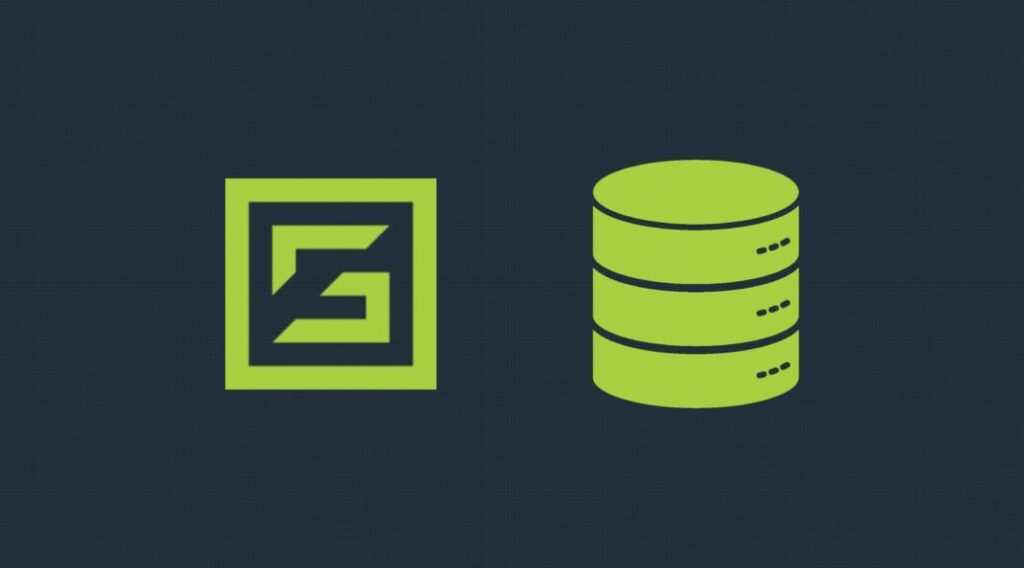Heading into 2024, SQL databases will remain essential in data management, increasingly using distributed systems to meet growing needs for scalability and reliability. According to 2023 statistics, 49% of web applications use an SQL-based database, with SQL having a 75% adoption rate in the IT industry.
In this post, we’ll cover the importance of distributed SQL databases, their benefits, and the strategic management they require. Facing the complexities of these systems, we will also introduce some modern solutions that make database administration more streamlined.
To get the most out of these powerful databases, it’s important to understand how they work. They keep the features that developers like but can handle much more data, similar to NoSQL systems. Notably, they simplify handling big data flows, offer consistent transactions, and sustain high performance even when they’re used for real-time data analysis and complex queries.
The main advantages of distributed SQL databases are scalability and continuous operation. By spreading data across several servers, they support growing applications without sacrificing speed or functionality. High availability is another cornerstone, with designs robust enough to resist node failures, ensuring uninterrupted service – critical for businesses that need to stay online all the time.
Among the top SQL databases, MySQL leads the pack with its widespread adoption and ease of integration, making it a favorite for web-based applications. PostgreSQL follows closely, acclaimed for its advanced capabilities and suitability for handling complex, large-scale data operations. Microsoft SQL Server is a go-to choice in the enterprise sphere, offering high performance and integration with other Microsoft products. These databases stand out for their unique blend of performance, features, and reliability, catering to a wide range of data management needs.
In summary, distributed SQL databases combine SQL reliability with next-gen scalability, meeting the data-intensive needs of modern businesses and organizations.
Importance of Managing and Scaling Distributed SQL Databases
Managing and growing distributed SQL databases is important for modern businesses to work efficiently and stay agile. Effective management ensures that the database infrastructure is not only reliable but also optimized for performance, regardless of the data volume or the number of transactions.
As businesses grow and data demands increase, the ability to scale out resources becomes essential to support additional load. This scalability is vital for businesses looking to maintain a competitive edge, as it allows them to adapt to market changes and customer demands.
Distributed SQL databases operate by dispersing data across multiple, interconnected nodes, as this setup helps them protect against system failures or power outages. These databases function through a network of servers that share the workload, allowing for incremental scaling and the management of large, complex data sets without a single point of failure.
The primary features of distributed SQL databases include fault tolerance, real-time data access, and transactional integrity. They offer a scalable solution that doesn’t compromise the SQL standards of consistency and reliability.
Challenges of Managing Distributed SQL Databases
Managing distributed SQL databases presents unique challenges that require specialized attention to maintain system integrity and performance:
Complex Configuration
Setting up a distributed SQL database can be quite complex. It starts with getting multiple nodes to work together, establishing how they communicate, and making sure data is properly divided. This process needs careful planning and know-how.
Data Consistency
Keeping data consistent across different nodes in a distributed SQL database is tough because of how the system spreads out. Making sure every transaction is correctly updated across the whole system requires sophisticated ways to keep everything in sync.
Scalability
Although distributed SQL databases are designed to scale up easily, handling this scalability can get complicated. It involves careful monitoring to determine when to add nodes and how to distribute data and load across the system without causing disruptions or bottlenecks.
Performance Optimization
Optimizing the performance of a distributed SQL database involves fine-tuning queries, indexing, and caching strategies to work effectively across multiple servers. This often means balancing the load to prevent any single node from affecting the overall performance.
Security Concerns
With data spread across multiple nodes, possibly in different locations, security becomes a multi-faceted issue. It’s important to guard against unauthorized access, make sure data is encrypted, and keep communication channels secure. These are key parts that need strong security measures.
Scaling Distributed SQL Databases
As the digital economy expands, scaling distributed SQL databases becomes crucial for businesses to accommodate growing data needs and ensure uninterrupted service.
Vertical Scaling vs Horizontal Scaling
Vertical scaling, or scaling up, involves boosting the capacity of an existing server by adding more resources, such as CPU or memory. While straightforward, it has limits; eventually, a single server can no longer be upgraded, and this method can lead to downtime during maintenance.
Horizontal scaling, or scaling out, is the essence of distributed databases. It involves adding more servers or nodes to the existing pool to distribute the load. This approach offers near-limitless scalability, as additional resources can be introduced with minimal disruption to the current operations.
Planning for Growth and Scalability
Strategic planning for scaling is crucial and involves understanding the anticipated growth in user base and data volume. It requires implementing scalable architecture from the outset and continuously monitoring performance data to predict when to scale.
Tools and Techniques for Scaling Distributed SQL Databases
Several tools and techniques facilitate the efficient scaling of distributed SQL databases. Automation tools can help manage the complexity of adding nodes and rebalancing data. Database sharding splits larger databases into smaller, faster, more easily managed pieces, or shards, that can be spread across multiple servers. Other techniques include the use of load balancers to distribute client requests evenly across servers, preventing any single server from becoming a bottleneck.
Monitoring tools are essential to observe the performance of distributed SQL databases and make informed decisions about scaling. These can range from custom-built internal solutions to market leaders in database performance monitoring.
Security Considerations for Distributed SQL Databases
Distributed SQL databases, while powerful, are not immune to security threats and vulnerabilities. In the era of cybersecurity threats, security considerations for distributed SQL databases are important to protect sensitive data and ensure continuous operations.
Common Security Threats and Vulnerabilities
One common threat is SQL injection, where attackers manipulate SQL queries to gain unauthorized access or cause harm to the database. This type of attack can lead to data breaches or loss. Another security threat is unauthorized access, which occurs when individuals gain access to the database without proper permissions, potentially leading to sensitive data exposure or malicious activities.
Another vulnerability in distributed SQL databases comes from their complex architecture. With data spread across multiple nodes, often in different locations, ensuring consistent security measures across all nodes is challenging. This complexity can create loopholes that hackers might exploit.
Additionally, as these databases handle large volumes of data, they become attractive targets for ransomware attacks, where cybercriminals encrypt data, denying access until a ransom is paid. Ensuring robust security measures, including regular vulnerability assessments and employing advanced threat detection systems, is essential to safeguard against these risks.
Best Practices for Securing Distributed SQL Databases
Securing a distributed SQL database involves several best practices:
- Implement strong authentication and authorization protocols to ensure only authorized personnel can access the database.
- Use encryption for data-at-rest and data-in-transit to protect sensitive information.
- Regularly update and patch database management systems to mitigate known vulnerabilities.
- Employ monitoring and auditing systems to detect suspicious activities in real time.
- Develop a comprehensive security policy that includes regular security assessments and response plans for potential breaches.
Compliance and Regulatory Requirements
Compliance with regulatory requirements is not just about adherence to laws but is critical for maintaining customer trust. Distributed SQL databases must comply with various standards and regulations, such as the General Data Protection Regulation (GDPR) for businesses operating in the European Union, or the Health Insurance Portability and Accountability Act (HIPAA) for handling health information in the United States. These regulations require strict data handling procedures, including data privacy controls, consent management, etc.
How ScaleGrid Simplifies Database Management for Distributed SQL Databases
ScaleGrid stands out as a solution designed to simplify the complex nature of managing distributed SQL databases like MySQL and PostgreSQL. With its user-friendly interface, ScaleGrid automates crucial processes, ensuring databases are operational and optimized.
Automation: ScaleGrid brings extensive automation to database management, reducing the need for manual intervention in tasks such as backups, recovery, and scaling operations. This automation ensures that administrative tasks are performed consistently and without human error.
Monitoring: A comprehensive monitoring system is crucial for maintaining the health of any database. ScaleGrid offers real-time monitoring capabilities that alert users to performance bottlenecks, potential security threats, and system inefficiencies.
Scalability: One of the significant challenges with distributed SQL databases is the complexity of scaling. ScaleGrid provides seamless scalability options, enabling databases to expand in response to increased demand.
Performance Optimization: With features designed to enhance performance, including query analysis and indexing suggestions, ScaleGrid ensures that databases run at peak efficiency.
Security: Recognizing the importance of security, ScaleGrid incorporates security measures to safeguard databases against threats and vulnerabilities, complying with regulatory standards and best practices.
Future Trends in Distributed SQL Databases
We anticipate advancements in machine learning for automated database tuning, enhancements in cross-region replication for improved global accessibility, and the integration of blockchain technology for security and data integrity.
ScaleGrid provides tools and services that ensure your distributed SQL databases remain robust, scalable, and secure.
For people looking to streamline database management, ScaleGrid’s blog and documentation offer a wealth of information.



